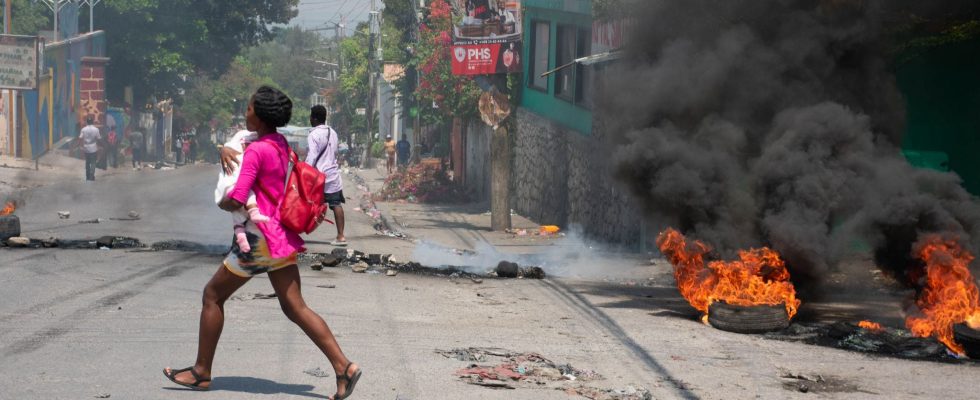A disaster in Haiti which is reflected in the figures. The International Organization for Migration, a UN agency specializing in the subject, announced this Friday that nearly 100,000 people had fled the metropolitan area of Port-au-Prince in one month to seek shelter from escalation of gang attacks.
Thanks to the implementation of data collection at the most used bus stations, the IOM observed between March 8 and April 9, the departure of 94,821 people from the capital. The latter mainly join the departments of the Great South which already welcomed 116,000 displaced people who fled in recent months, the UN organization said in a press release. The previous IOM figure showed 53,000 people having fled in three weeks between March 8 and 27.
Despite these already deeply alarming figures, the IOM points out that they do not necessarily reflect the entire flow, with some displaced persons not passing through the data collection points or passing through when the data cannot be collected.
The destination provinces “do not have sufficient infrastructure and the host communities do not have sufficient resources that can allow them to cope with these massive displacement flows coming from the capital”, also points out the IOM.
Displacements that concern all Haitians
According to this data, the majority (63%) of these nearly 100,000 people who fled the capital were already internally displaced, often having first taken refuge with relatives within the metropolitan area of Port-au-Prince. . Some had even already been moved twice, three times, or more.
But the IOM has observed a new phenomenon. While at the beginning of March, those already internally displaced were the first to leave the capital, over time, those who had not previously been displaced also decided to leave. “This further describes the deterioration of the situation in the capital, given that leaving the capital could be a relatively quicker decision to make for a person who was already displaced than for someone who was still in their residence and decides to leave it to seek refuge in the provinces,” commented the UN agency.
The vast majority (78%) of those interviewed by IOM as part of this data collection indicated that they were leaving the capital because of the violence and 66% assured that they would stay outside “as long as necessary”.
Haiti has been ravaged for decades by poverty, natural disasters, political instability and gang violence. Since late February, powerful Haitian gangs have teamed up to attack police stations, prisons, the airport and the seaport in an effort to oust Prime Minister Ariel Henry. Highly contested, the latter announced on March 11 that he would resign to make way for a transition council. But this body has still not been enthroned.
